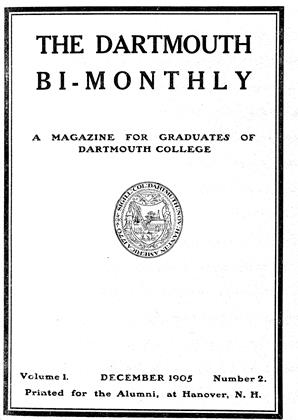PROFESSOR Moore's edition of the Be Senectute, one of the best known of the shorter essays of Cicero, has received the most flattering attention and commendation from many of the foremost Latin scholars of America. Abroad, too, the book has found enthusiastic admirers, among whom is Alois Kornitzer of Vienna (himself an editor of the De Senectute as well as of a number of Cicero's Orations) , who is regarded as one of the greatest present-day authorities on Ciceronian study. He has written a very lengthy and interesting review of Professor Moore's book for the Berliner Philologische Wochenschrift of April 22, 1905.
The following is a translation of the more general parts of the review: "The commentary which we here review is both interesting and unusually worthy of attention. It far surpasses in importance the current school editions of the Cato Maior written in German, which, though carefully composed, have set a distinctly lower standard than has the editor of this English edition. Moore's commentary is characterized in every part by great independence of judgment. It undoubtedly affords the student a sufficient means for entering into a full appreciation of this work of Cicero ; but he will render still more valuable service to the philological student and the teacher of Latin by his scientific, painstaking, and appreciative interpretation. His interpretation will aid them in all the questions of criticism and explanation that are involved. Moore here shows a comprehensive aquaintauce with the whole range of Latin literature, especially that of the earlier period, and the results of this wide reading are of the greatest advantage in the interpretation of many passages, particularly by the introduction of felicitous parallels. The treatment of grammatical questions shows a thorough-going knowledge of the most recent progress in linguistic study. It is safe to say that through this commentary a noteworthy advance has been made toward the interpretation of the Cato Maior. By reason of the independence of judgment mentioned above, and a certain vigorous mode of expression, his annotations are constantly attractive and stimulating, even where we might perhaps not agree with him. For example, the remark on the verse of Ennius (§I. Ille vir haud magnacum re, sed plenus fidei), ' perhaps an indirect allusion to Cicero's own diminished fortunes,' even if not satisfactorily proved, seems to me to be at least the conjecture of genius.
"An exhaustive, introduction is prefixed to the text, compiled with a careful examination of the sources. This treats of Cicero's plan and purpose in the composition of the dialogue, the real and the ideal Cato, his writings, etc. The introduction also contains a very interesting and unexpected addition, a poem written in Latin hexameters by Pope Leo XIII, entitled, Tenui victu contentus ingluviem fuge. Ad Fabricium Rufumepistola. The poem first appeared in La Voce della Verita, 19 May, 1897, then in Leonis XIII P. M. CarminaNovissima, Udine, 1898. It is an idyllic poem whose precepts pertain to the proper mode of life in extreme old age
"In the establishment of the text, Moore has first given in a chapter of the introduction a summary of the whole critical apparatus, and a judicious, well-balanced valuation of the more important manuscripts. His text is based on an extremely careful examination of manuscript readings. Since the appearance of C. F. W. Muller's critical edition (1879) a long time has elapsed, and our knowledge of the manuscripts of the Cato Maior has been materially enlarged. Scarcely one of the numerous contributions to the criticism of the Cato Maior has escaped the watchfulness of the editor. Therefore the textual notes contained in the appendix constitute a critical apparatus which will be almost indispensable for future work upon the subject
"In closing, let me once more earnestly commend to the attention of all lovers of Cicero's writings this edition of the Cato Maior, so significant in every respect. The foregoing remarks must have made clear that, for criticism as well as for exegesis, it marks a great advance in our knowledge, and will afford much inspiration."
 View Full Issue
View Full Issue
More From This Issue
-
 Article
ArticleATHLETIC SPORTS AT DARTMOUTH
December 1905 By Edwin J. Bartlett '72 -
 Article
ArticlePRESIDENT ROOSEVELT'S RAILROAD POLICY
December 1905 By Frank Haigh Dixon -
 Article
ArticleFOOTBALL
December 1905 -
 Article
ArticleTHE new catalogue, for 1905-1906,
December 1905 -
 Article
ArticleTHE KOSCHWITZ LIBRARY
December 1905 By P.O. Skinner -
 Article
ArticleTHE FOOTBALL RULES
December 1905 By F.G. Folsom '95
Article
-
 Article
ArticleAN UNUSUAL TRIBUTE
January 1917 -
 Article
ArticleFive Newly Elected Members Of Dartmouth Alumni Council
June 1950 -
 Article
ArticleTotal Class Giving to June 30, 1967
NOVEMBER 1967 -
 Article
ArticleMore Plumtree Pluck
MAY 2000 By Courtney Cook Williamson ’93 -
 Article
ArticleSQUASH
December 1936 By ROBERT A. SELLMER '35 -
 Article
ArticleMILESTONES
April 1936 By William J. Minsch Jr. '36


